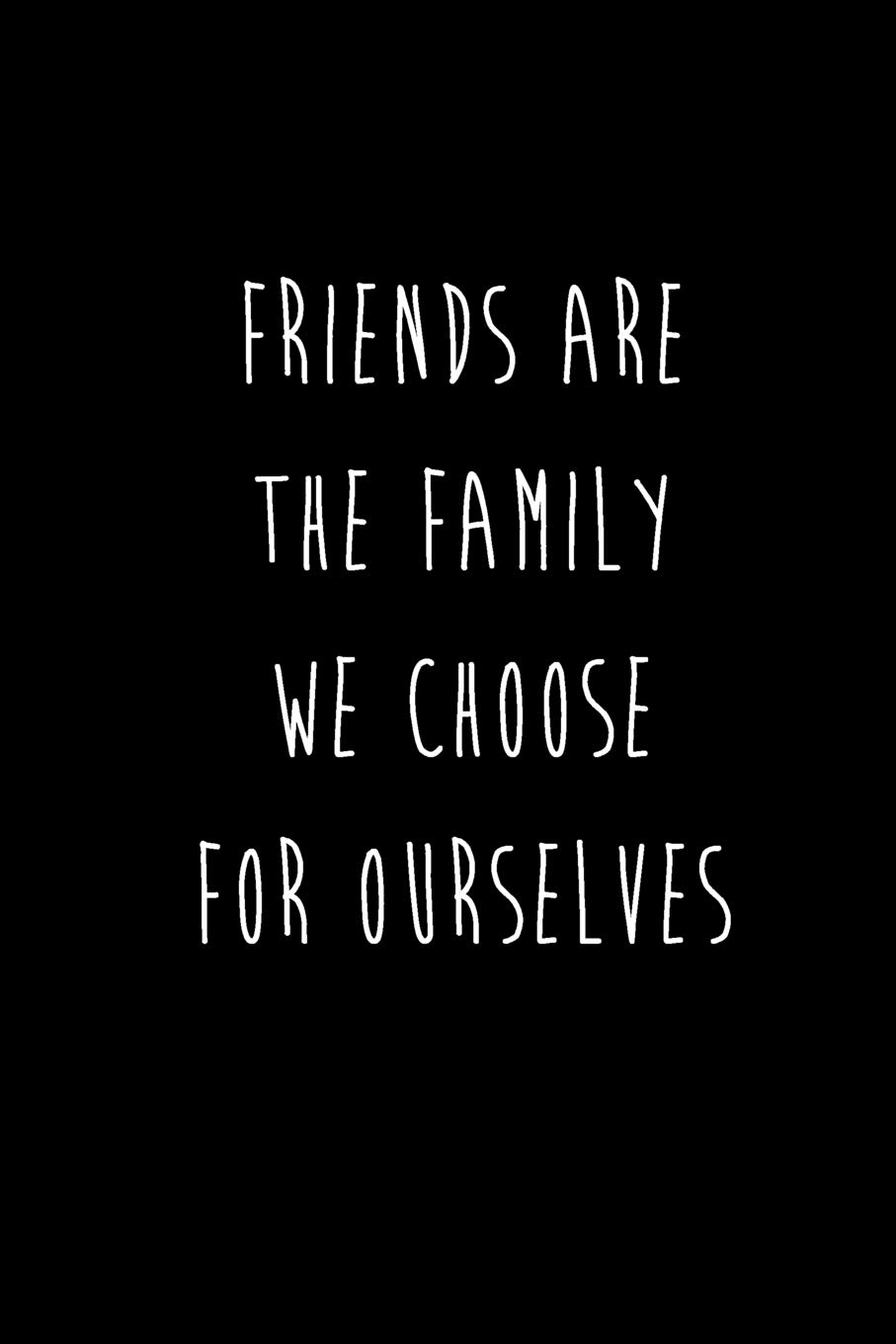About this deal
These terms are ways people express just how much their friends mean to them. People’s perception of family is that they should be the most important people in your life. Family should look out for each other no matter what. Sure, you didn’t get to choose your family, but you still should have an extraordinary loyalty to each other.
Friends Are The Family You Choose SVG Cut File - CraftBundles Friends Are The Family You Choose SVG Cut File - CraftBundles
Coleman JS. Social capital in the creation of human capital. American Journal of Sociology. 1988; 94:95–120. doi: 10.1086/228943. [ CrossRef] [ Google Scholar] The demographic characteristics are considered first. Gender is not significant, suggesting that there are no differences in life satisfaction between men and women. The parameters associated with the age are both significant, suggesting that there is a quadratic relation between life satisfaction and age. The linear combination of the estimates indicates that the oldest people tend to be more satisfied than the youngest. It is observed that individuals with a high level of education tend to be less satisfied than those possessing a lower or medium level of education. These results can be related to the different expectations the young (more eager for life) and, to some extent, more educated people (more acute in the evaluation of their living conditions) have with respect to those who are older and less educated. Regarding the age effect, the difference with the aforementioned literature might be due to a diverse context of analysis and/or to the choice of other control variables. Everyone has different levels of friends. You have people you only interact with through social media. You have the friends you only see at work or the ones you might see at a weekly book club. If you have kids, the parents of your child’s pals might be your friends. But you might only see them on playdates or at kid’s birthday parties.Recognizing the importance of identifying individuals’ networks to understand many phenomena (e.g., social support, socioeconomic mobility, social integration, health conditions), several national and international surveys (e.g., the Generations and Gender Surveys, the International Social Survey Programme and the European Quality of Life Survey, and the Italian Multipurpose surveys) provide information on the ego-centered network of each respondent. This data might be used to investigate network-based sources of social capital at individual level, even though these surveys are neither network-oriented nor social capital-oriented. Because of the availability of these broad surveys that measure both social relations and aspects of an individual’s life, more studies have considered the potential role of social networks in the life of individuals. The analysis of social capital focuses on the set of relationships in which individuals are embedded. These relations are resources for the individuals themselves and might have an impact on some aspects of their life, e.g., performance, well-being, and support. McCamish-Svensson C, Samuelson G, Hagberg B, Svensson T, Dehlin O. Social relationships and health as predictors of life satisfaction in advanced old age: results from a Swedish longitudinal study. The International Journal of Aging and Human Development. 1999; 48(4):301–324. doi: 10.2190/GX0K-565H-08FB-XF5G. [ PubMed] [ CrossRef] [ Google Scholar] In the study, Fowler and Christakis also develop what they call a "friendship score," which they can use to predict who will be friends at about the same level of confidence that scientists currently have for predicting, on the basis of genes, a person's chances of obesity or schizophrenia. Hassmén P, Koivula N, Uutela A. Physical exercise and psychological well-being: a population study in Finland. Preventive Medicine. 2000; 30(1):17–25. doi: 10.1006/pmed.1999.0597. [ PubMed] [ CrossRef] [ Google Scholar]
Friends Are the Family You Choose: Genome-Wide Analysis Friends Are the Family You Choose: Genome-Wide Analysis
Pavot W, Diener E. Review of the satisfaction with life scale. Psychological Assessment. 1993; 5:164–172. doi: 10.1037/1040-3590.5.2.164. [ CrossRef] [ Google Scholar] mentioned above, satisfaction with work is embedded in the variable describing employment status (see footnote 2). The coefficients of the variables related to the economic status show that employed people (particularly those who declared to be very satisfied with their work) with adequate economic resources tend to be more satisfied than the others. The coefficients related to the family’s structure suggest that individuals living in couples (with or without children) tend to be more satisfied with their life when compared to people living in other family structures.Huxthold O, Miche M, Schz B. Benefits of having friends in older ages: differential effects of informal social activities on well-being in middle-aged and older adults. The Journals of Gerontology Series B: Psychological Sciences and Social Sciences. 2013; 69(3):366–375. doi: 10.1093/geronb/gbt029. [ PubMed] [ CrossRef] [ Google Scholar] Haller M, Hadler M. How social relations and structures can produce happiness and unhappiness: an international comparative analysis. Social Indicators Research. 2006; 75:169–216. doi: 10.1007/s11205-004-6297-y. [ CrossRef] [ Google Scholar] If you consider your friends family, you may be on to something. A study from the University of California, San Diego, and Yale University finds that friends who are not biologically related still resemble each other genetically.
Friends Are the Family We Choose Gifts - Etsy UK
Breiger RL. The analysis of social networks. In: Hardy M, Bryman A, editors. Handbook of data analysis. London: Sage; 2004. pp. 505–526. [ Google Scholar] The researchers focused on 1,932 unique subjects and compared pairs of unrelated friends against pairs of unrelated strangers. The same people, who were neither kin nor spouses, were used in both types of samples. The only thing that differed between them was their social relationship.Walen HR, Lachman ME. Social support and strain from partner, family, and friends: costs and benefits for men and women in adulthood. Journal of Social and Personal Relationships. 2000; 17:5–30. doi: 10.1177/0265407500171001. [ CrossRef] [ Google Scholar]
 Great Deal
Great Deal 